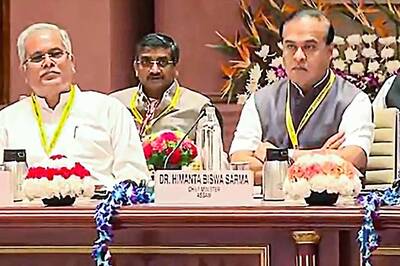
views
New Delhi: Markets regulator Sebi on Tuesday came out with a strict framework for public interest directors serving at stock exchanges, clearing corporations and depositories.
Under the framework, public interest directors (PIDs) will be nominated for three years, extendable by another term of three years. However, this will be subject to a performance review, the Securities and Exchange Board of India (Sebi) said in a circular.
Following the expiry of tenure, such director may be nominated for a further term of three years in another market infrastructure institution (MII) only after a cooling-off period of one year. The tenure of PIDs can be a maximum of three terms of three years each, subject to 75 years of age.
With regard to the term of existing PIDs serving in an MII for more than three years, Sebi said the term can be extended, subject to the performance review and a maximum tenure of six years in that particular MII.
However, the term of existing PIDs who have already served for six years or more in a single MII will not be eligible for further extension in that entity.
According to Sebi, the nomination and remuneration committee (NRC) of the MIIs — stock exchanges, clearing corporations and depositories — will be responsible for framing the performance review policy for PIDs.
Such policy will include criteria for performance evaluation, methodology adopted for such evaluation and analysing the results, amongst others. Also, it will include scope for both internal as well as external evaluation.
"Further, as performance review is not a static process and requires periodical review, NRC shall also be responsible for reviewing such performance review policy, at least once in 3 years. Such performance review policy and changes made therein, shall be approved by the governing board of MII," Sebi said.
With regard to evaluation mechanism, the regulator said that PIDs will be subject to internal and external evaluation, carrying equal weightage.
Under the internal evaluation, all the governing board members will evaluate the performance of each PID on an annual basis at the end of every financial year.
PIDs will be subject to external evaluation during their last year of the term in an MII by a management or a human resources consulting firm.
"The consultant shall take into consideration the performance of the PID for the entire tenure served in a given MII, at least up to 4 months before expiry of his/her term. In order to avoid any bias or conflict of interest, external consultant should not be a related party or associated with the MII, the concerned PID or any other governing board members," Sebi noted.
In case of any conflict of interest of any PIDs, then the same should be disclosed to Sebi by the governing board with their comments.
In addition to the other requirements prescribed in performance review policy of the MIIs, NRCs need to consider that the concerned PID has not remained absent for three consecutive meetings of the governing board and has attended 75 per cent of the total meetings of the governing board in each calendar year, failing which PID will be liable to vacate office.
Besides, PIDs in the governing boards of MIIs should be selected from diverse fields of work in terms of their qualification and experience.
The application for extension of term of a PID needs to be accompanied with the attendance details in the meetings of various mandatory committees as well as the governing board of the MII along with specific reasons for seeking the extension.
"Such specific reasons shall include facts such as whether the concerned PID, during the term served, had identified any important issues concerning any matter which may involve conflict of interest, or have significant impact on functioning of MII, or may not be in the interest of securities market as a whole, and whether the PID had reported the same to Sebi," the regulator added.
The regulator has clarified that a minimum of two names shall be submitted by MIIs at the time of making request for appointment of PID and extension of the term of existing PID, including appointment for the purpose of broad basing the governing board, against each such vacancy.
After taking into account the performance of a PID in the concerned MII, on the basis of internal evaluation and external evaluation, NRC will consider and recommend extension of the tenure to the MII's governing board.
The governing board of the MII will in turn consider and recommend to Sebi if the tenure of the PID is desired to be extended by another term of three years.



















Comments
0 comment